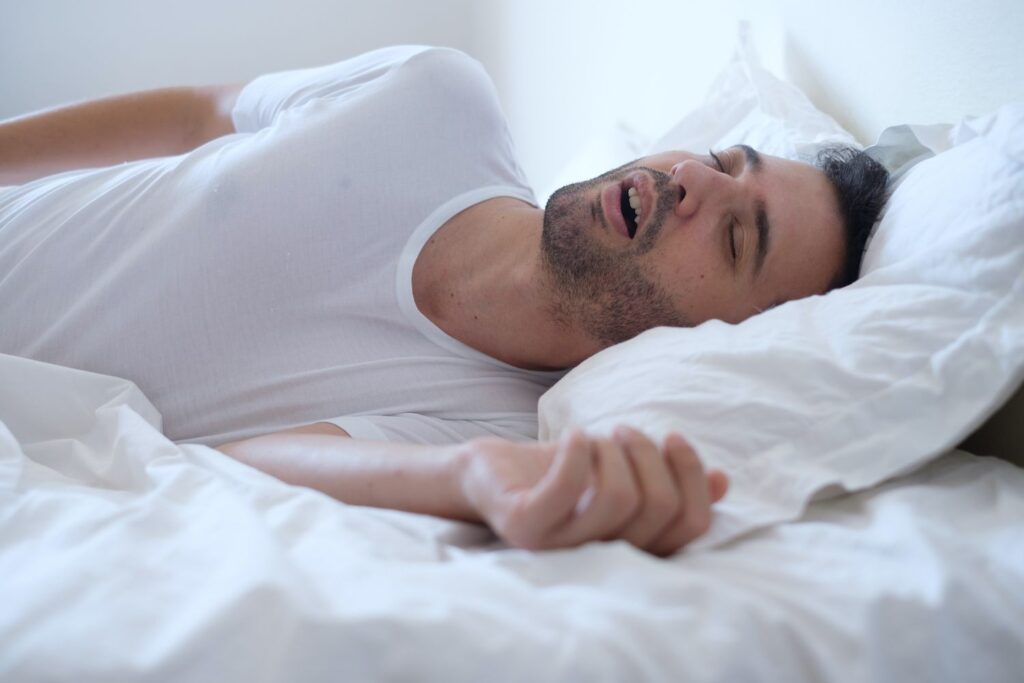If you have been recently diagnosed with sleep apnea, you may have a lot of questions. What is it? What are my treatment options? Is it serious? Do I even need treatment? Whatever questions you have, your dentist will be able to answer them.
Yes, your dentist can actually treat your sleep apnea. In fact, your dentist may recognize the signs of sleep apnea before a doctor formally diagnoses you. This is yet another reason not to skip your twice-yearly dental appointments. In addition, a dentist can identify other health disorders, like sleep apnea, and recommend treatment or refer you to a sleep study.


What Is Sleep Apnea?
Sleep apnea is a sleep disorder where your breathing starts and stops throughout the night. Loud snoring and daytime fatigue are common signs of sleep apnea. Not all snoring means that you have sleep apnea, but you should get a sleep study just in case. If left untreated, sleep apnea can lead to serious side effects and health conditions.
There are a few different types of sleep apnea.
Obstructive sleep apnea is one of the most common forms of sleep apnea. When you sleep, your muscles relax, which potentially creates some issues. With sleep apnea, the soft tissues in the throat—including the soft palate—relax and obstruct the airway. This prevents oxygen from circulating in the bloodstream, so your body will wake you to restore oxygen levels. You may not even be aware of waking through the night because the arousal period is so brief.
Complex sleep apnea occurs when the brain doesn’t send the proper signals to the body. Usually, you breathe without thinking about it. It is a natural function that happens without conscious effort. This is because the brain sends signals to your muscles to contract and breathe. With complex sleep apnea, this function doesn’t happen in your sleep.
There is a type of sleep apnea that combines both types. Complex sleep apnea syndrome is characterized by obstructive sleep and improper signals from the brain.
What Are My Treatment Options?
A CPAP is one method of treating sleep apnea. While you sleep, a CPAP machine delivers a stream of air that keeps your airway open all night. It allows you to breathe without interruption continually. Since nothing is blocking your airway, you can sleep through the night without waking. After using a CPAP machine, you will quickly catch up on all your missed sleep.
Another treatment option is to use oral appliance therapy. An oral appliance is a device that looks almost like a mouthguard. This device keeps the tongue from blocking your airway while you sleep. In addition, the appliance holds your jaw in place, eliminating another obstruction risk. A dentist will custom fit this oral appliance to fit your mouth perfectly, ensuring a suitable placement.
Unlike a CPAP machine, an oral appliance is quiet and doesn’t require cords or electricity. However, oral appliances are only for patients with mild obstructive sleep apnea. So your best plan of action is to talk to your dentist about what options are best for you.
